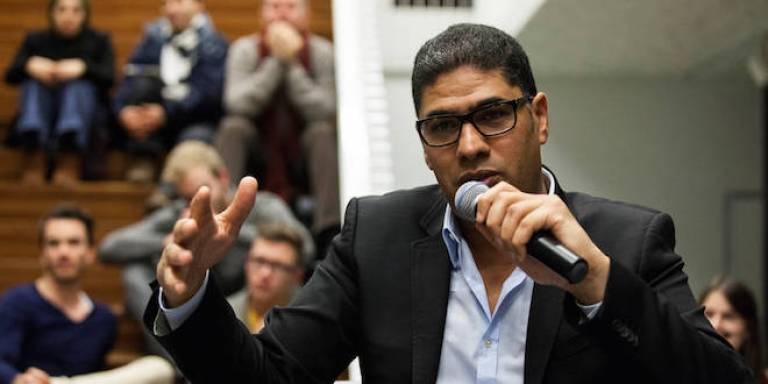Rachid Benzine is now part of the new thinkers of Islam, on which he has written a book. The French Moroccan philosopher, author of "The Qur'an explained to the youth" (Seuil, 2013), advocates a critical work on Islam, historical in particular. A way to avoid religious texts being established as an absolute truth.
What do you think of the recent Islamist attacks in France?
It is important to get out of a double denial. The denial of the French society, which has a cultural or religious explanation for these attacks and refuses to ask the question of what it missed during the last thirty or forty years.
The denial of Muslims who say that this has nothing to do with Islam. Those who say this are in denial. This violence has to do with Islam, as some violence in the name of Christianity also has to do with it.
This violence has to do with some reading [of Islam] that has spread for over forty years and is in line with both the Saudi Wahhabism and the Muslim Brotherhood ideology. Staying in this denial prevents a work of necessary critical distance within Islam and will not help Muslims.
This causes the tragedy of Islam which you’re talking about?
Islam is going through a great tragedy. This tragedy is marked by a lack of authoritative bodies that are able to resolve conflicts of interpretation. And also a history deficit concerning the origins of Islam. Because of this lack of history, storytelling and made up stories take the forefront. Today on the Internet, people have access to only snippets of texts, an idealized representation of the prophet of Islam, which took two centuries to build. From this, they tinker a religious identity, supposed Islamic, which dates back to the early days of Islam. And what is taught in mosques is [the equivalent of] Catholic catechism of the 50s, that is, a holy history, sacred, without any historical or anthropological work.
Without this work, it is not possible to have something other than a fixed representation of things?
No. And it’s in the name of a fixed representation regarded as an absolute truth that people are killed.
In the name of a cartoon that people are killed. In the name of an insult.
What is funny is that in the Qur’an, the prophet is insulted. In Sura 108, Verse 3, the Qur'an explicitly states: "He who insults you, he is the castrated." Mohammed, having no male descendant, is treated by an opponent, as if like a castrated. This is the worst insult in the society of the seventh century, meaning that if you do not have a male descendant, you do not exist. The Qur'an does not act violently against the person who insulted the Prophet. it responds to the insult with the speech.
Is the violence inscribed in Islam?
In all religious texts, there are violent speeches. It’s according to the contexts that you activate them or not. But do not confuse violence of speech and acting out.
Violence of speech in religious texts often reflects the inability to take action. The speech was a compensation effect. It is in the virtual. And what is the virtual, understandable to people of the time, will become absolute for a number of young people who do not have the critical tools to read the texts.
This means that some will use texts as an excuse...
Of course. These people have an ideology and you can find everything and anything in religious texts to justify it. If you want to justify the peace of Islam or want to make war on everyone, you will get it in the texts. But it is a reading of today.

